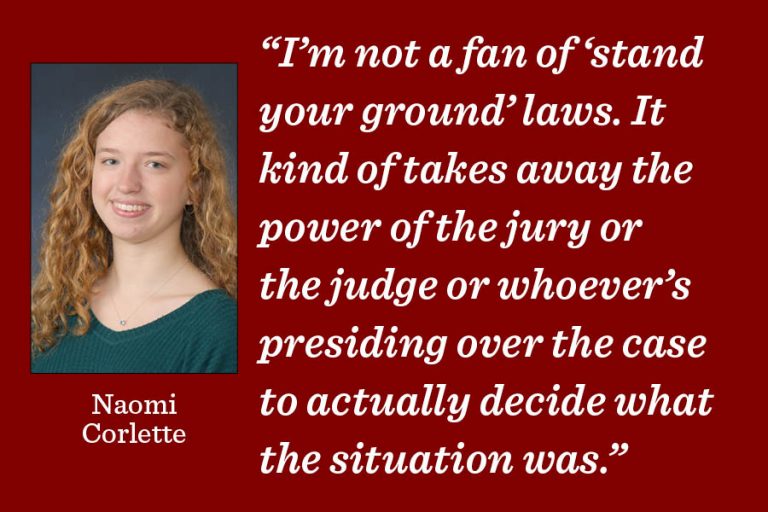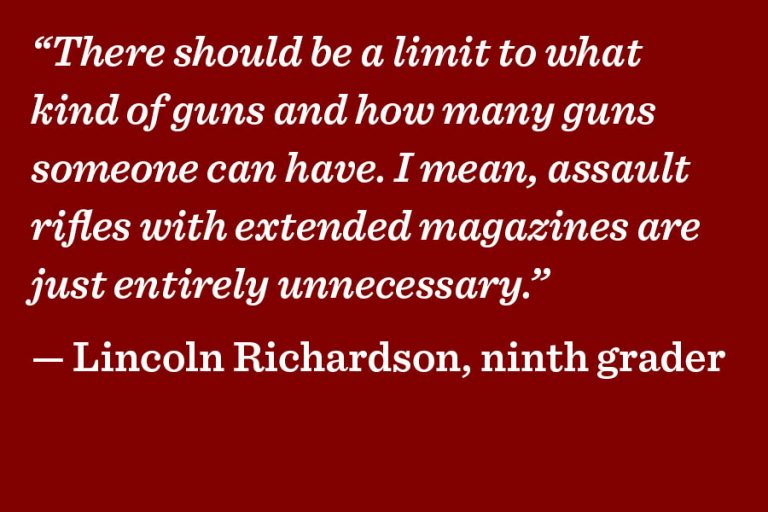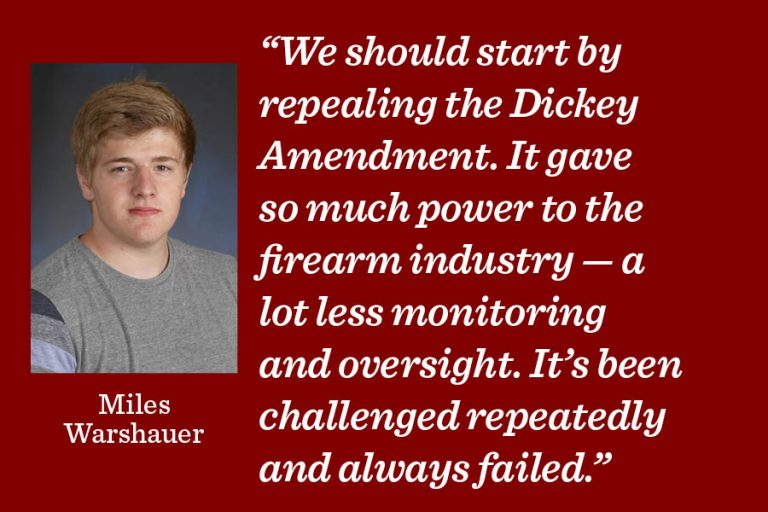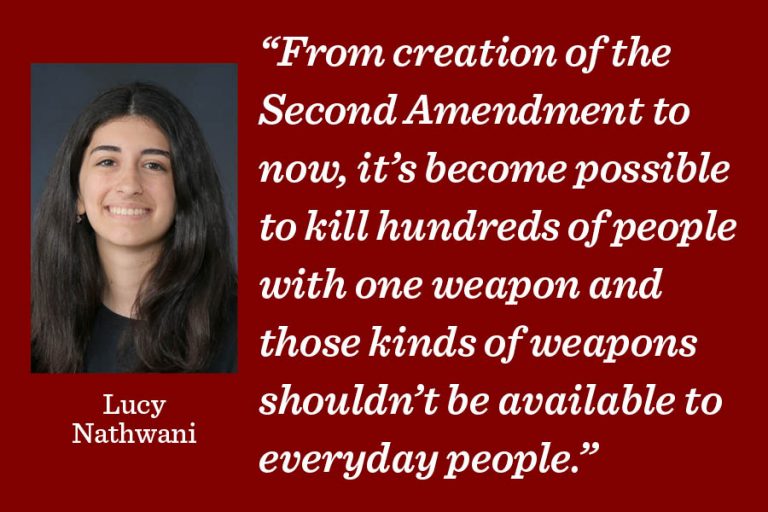For students, regulation, not bans, is top priority
February 16, 2021
Students who favor additional gun restrictions say they are primarily concerned with federal firearm regulation and universal background checks.
According to senior Naomi Corlette, universal background checks are a priority. Federal law currently requires background checks for all sales from licensed dealers. However, private transactions between individuals like online purchases or in-person gun shows do not require background checks.
“We need stronger gun control just for the safety of everybody,” Naomi said. “We’ve seen not even just in the past few years that guns can cause terrible things. So I think that better laws and better regulations would hopefully change that.”
According to senior Miles Warshauer, the lack of governmental infrastructure surrounding guns is worrisome.
“The fact that we don’t have a universal background check system, like with gun shows or just people getting it from an online auction is a big problem,” Miles said.
According to a 2017 survey, 22% of U.S. gun owners bought a gun without any background check, which Miles said needs to be changed.
“We don’t have any sort of national registry, which would go a long way,” he said.
Lucy Nathwani, junior, agrees. She said the ease of obtaining guns is especially concerning. Shooters in especially deadly sprees such as the 2017 Las Vegas attack in which 61 people died and the 2018 school shooting at Marjory Stoneman Douglas High School in Parkland, Florida, obtained their guns legally.
“That was really disturbing to me, so I’d like to see a lot more strict regulations around who’s allowed to access the gun and what kinds of firearms they are allowed to have,” Lucy said.
The type of firearms that are accessible is another common issue among students. Ninth grader Lincoln Richardson said it is unnecessary for anyone to have an assault rifle with an extended magazine, which allows for more ammunition to be fired before reloading the rifle.
But students, like Lucy, are not advocating for a blanket gun ban, which would prohibit the sale of any firearm and repeal the Second Amendment.
“In the time from the Second Amendment’s creation to now, it’s become possible to kill hundreds of people with one weapon, and those kinds of weapons shouldn’t be available to everyday people,” Lucy said, “but I don’t think that banning firearms entirely is fair. Nor is it, I think, possible.”
Specific pieces of gun legislation also present issues to students. Open carry laws, for instance, allow gun owners to carry a weapon on their person such that it is observable by the general public, like in a holster or on a sling.
“I think that open carry laws shouldn’t be allowed because I think that’s used as an intimidation tactic,” Naomi said.
According to Miles, the Dickey Amendment, which prohibits the Centers for Disease Control and Prevention from using congressional funding to “advocate or promote gun control,” makes it harder to even engage in the necessary research to establish gun control.
“We have a system where the CDC can’t do research on gun violence — we are just way too relaxed on how we distribute, how we monitor and how we all-in-all treat guns in our nation,” Miles said.



